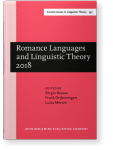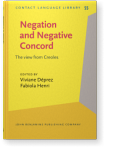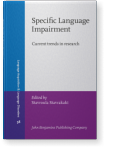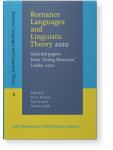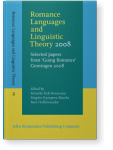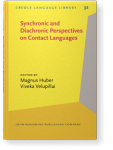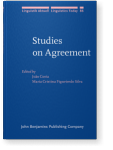Fernanda Pratas
List of John Benjamins publications for which Fernanda Pratas plays a role.
2021 Chapter 12. Temporal marking and (in)accessibility in Capeverdean Romance Languages and Linguistic Theory 2018: Selected papers from 'Going Romance' 32, Utrecht, Drijkoningen, Frank, Sergio Baauw and Luisa Meroni (eds.), pp. 225–248 | Chapter
Recent descriptions have argued that what seem to be past tense markers in Capeverdean, a Portuguese-related language spoken in Cabo Verde, are instead allomorphs of a temporal agreement morpheme (Pratas 2018a). The rationale for this goes as follows. It is true that both -ba, from the variety… read more
2018 Elements of denial in Capeverdean: The negator ka and the properties of n-words Negation and Negative Concord: The view from Creoles, Déprez, Viviane and Fabiola Henri (eds.), pp. 191–210 | Chapter
This paper aims at showing that Capeverdean, a Portuguese-based Creole, is a strict Negative Concord language. In fact, n-words (Laka 1990) like ningen ‘no.one’ and nada ‘nothing’ always co-occur with sentential negation, be they in preverbal or postverbal position. This means that they are… read more
2015 Null Subjects in Monolingual and Bilingual, Typical and Atypical Development: an exploratory study Specific Language Impairment: Current trends in research, Stavrakaki, Stavroula (ed.), pp. 175–190 | Article
We present an exploratory test on the production of null subjects by 13
monolinguals acquiring Capeverdean, 6 bilingual speakers of Capeverdean
and European Portuguese with typical language development and 7 bilingual
speakers with SLI features. Capeverdean does not allow null referential… read more
2012 VP Ellipsis: New evidence from Capeverdean Romance Languages and Linguistic Theory 2010: Selected papers from 'Going Romance' Leiden 2010, Franco, Irene, Sara Lusini and Andrés Saab (eds.), pp. 155–176 | Article
Capeverdean, a Portuguese-based Creole language, displays an intriguing pattern of VP Ellipsis (VPE): VPE may occur in answers to yes/no questions but it is ruled out in coordination structures. This is unexpected, since both polar question/answer pairs and coordination structures are typical… read more
2012 ‘I know the answer’: A Perfect State in Capeverdean Romance Languages and Linguistic Theory 2010: Selected papers from 'Going Romance' Leiden 2010, Franco, Irene, Sara Lusini and Andrés Saab (eds.), pp. 65–86 | Article
In Capeverdean, there is a puzzling temporal reading for some occurrences of sabe ‘know’, as opposed to all eventive and some stative sentences: N sabe risposta has a present reading, ‘I know the answer’, whereas N kume pexe and N kridita na Nhor Des have past readings, ‘I ate the fish’ and ‘I… read more
2010 States and temporal interpretation in Capeverdean Romance Languages and Linguistic Theory 2008: Selected papers from 'Going Romance' Groningen 2008, Bok-Bennema, Reineke, Brigitte Kampers-Manhe and Bart Hollebrandse (eds.), pp. 215–232 | Article
One known puzzle in Creole systems is that temporal interpretation seems to be constrained by stativity (Bickerton 1974). For decades, the relevant division has been, roughly: bare stative verbs mean present, bare nonstatives mean past. In Capeverdean, a Portuguese-based Creole, we do indeed have:… read more
2007 6. Reflexivity in Capeverdean: Predicate properties and sentence structure Synchronic and Diachronic Perspectives on Contact Languages, Huber, Magnus and Viveka Velupillai (eds.), pp. 117–128 | Article
2006 Capeverdean DP-internal number agreement: Additional arguments for a distributed morphology approach Studies on Agreement, Costa, João and Maria Cristina Figueiredo Silva (eds.), pp. 11–24 | Article
